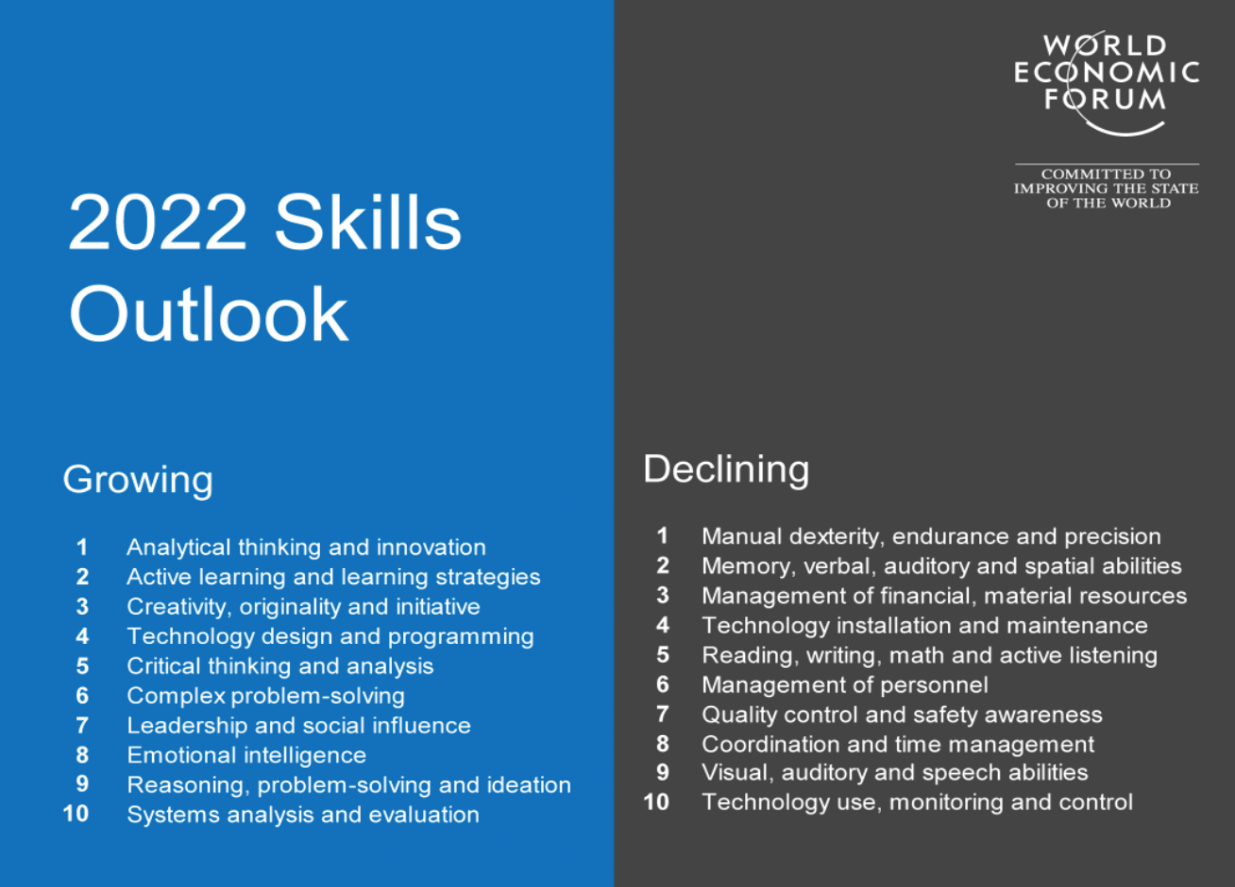In this time of unprecedented technological change, where the nature of work is evolving so rapidly that half of today’s job descriptions are forecast to disappear within 20 years and as-yet unimagined jobs will arise to replace them, the need has never been greater for workers to evolve quickly and purposefully. The 20th century ideal of a long career with one employer in one secure, gradually growing role is literally a part of history. This century is defined by rapidly changing employers and job descriptions, with little security and growing autonomy of the workforce to move more often and choose their next employers.
Successful organizations promote life-long learning
One of the leading principles that excellent organizations share is a commitment to continual learning. They know that their success is driven by employee loyalty, happiness, and productivity, which in turn are driven by offering employees opportunities for growth, knowledge, and promotion. Life-long learning has always been a characteristic of a desirable employee, often being rewarded with promotions and increased salaries. Today, the emphasis for workers is to prepare for obsolescence of an old role and opportunity in a new role.
If you work for an employer that prioritizes continual learning, then you have an advantage but nevertheless you must take action to avail yourself of everything offered. If you are on your own regarding learning, then you will have to do a little more investigation into external training options to stay ahead of change. Either way, educating yourself is a shared responsibility and is a win-win for you and your organization.
Using learning technology to customize your curriculum
For workers, maintaining control of their careers means staying connected to the broader society, scanning the environment for opportunities and risks, and continually learning new skills and information that directly supports their ability to relocate with confidence. Thanks to the same disruptive technology that creates rapid change, it is more convenient than ever to register and study educational offerings and receive accreditation without leaving your desk. The ease with which you can customize a curriculum to fit your exact needs is challenging the traditional university and college models, so they are adapting quickly to build new relationships with each other, with industry, and within their communities to better prepare high school graduates for their first careers and to retrain mature working students for their next careers.

World Economic Forum: The Future of Jobs Report 2018
At the greatest risk are lower-paid service jobs and entry-level professional jobs. Fast food prep, warehouse pickers, retail clerks, accounting clerks, law clerks, and truck drivers are examples of jobs that automation and AI are already replacing. Even the time-honoured professions like medicine and law are facing stiff competition from artificial intelligence and applied technology, not just replacing but out-performing humans in many aspects of their jobs.
Moving from a minimum wage hourly job into a different skilled trade or knowledge job will take foresight and preparation, by governments, educators, employers and workers. There are already skilled-labour shortages that even immigration policy cannot satisfy, so it will be up to employers to train or retrain workers to fit their needs, or actively integrate their needs with the college system to produce the right workforce.
Deciding how to invest your educational time and money
Education is something you own and take with you when you change jobs or start out on your own. Your employer may pay for it and benefit from it but like work experience, education leaves with you. It makes you more valuable to your current employer and to your future employer but just as importantly, applied knowledge builds self-confidence and self-esteem.
Are you getting ready to research and find the best and most reputable educator to meet your needs? Some questions to think about when deciding on your education choices are:
- What kind of knowledge are you seeking? Enhanced skills to advance your current career, acquire new skills for a career change, satisfy curiosity about unrelated subjects
- What time do you have available? Full-time study, evening courses, self-paced on-line modules
- What credentials do you want or need? Certification, degree, diploma, professional development credits, or none
- What kind of learning environment suits you best? Public classroom, workshop with colleagues, online by yourself
- What budget and source of funds do you have? Yourself, your employer, government grants
Places to look for courses that meet your personal criteria include:
- Your employer’s in-house learning management system
- Associations representing your industry or profession
- Local post-secondary institutions
- Reputable on-line training organizations
Creating an Employer of Choice
If you are interested in leading your organization through a “Journey to Excellence”, with a focus on continuous quality improvement, process management, project planning, and employee well-being, you will be interested in certificate courses offered by Excellence Canada, for over 35 years the nation’s authority on organizational Excellence, Innovation and Wellness® and Healthy Workplace®. Two valuable designations to give you the skills needed to drive real sustainable change for your employer are Certified Excellence Professional (CEP) and Certificate in Process Management (CPM). Visit https://excellence.ca/training/ for course details. Training is available on-line and in-house.


